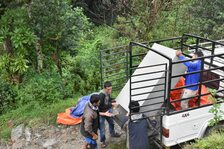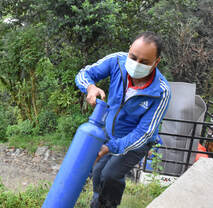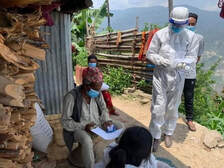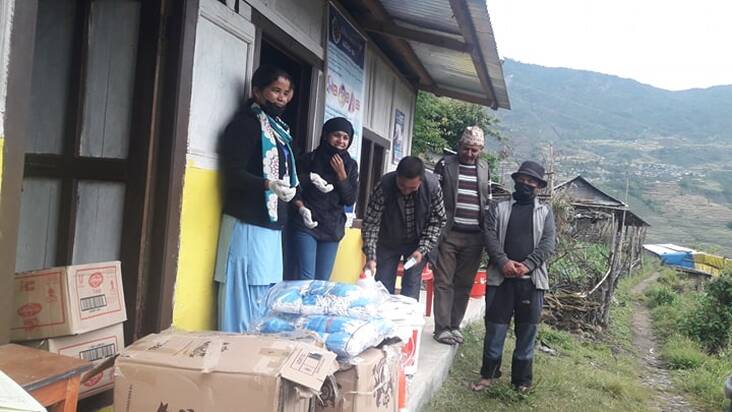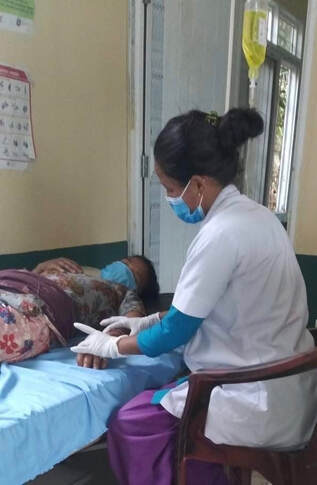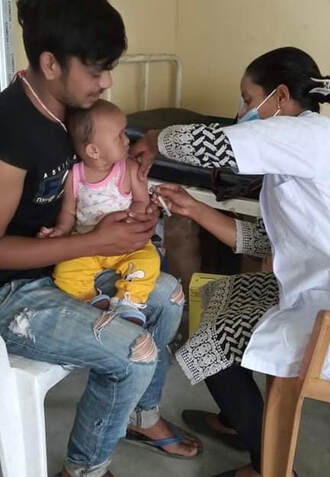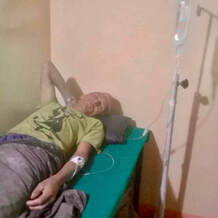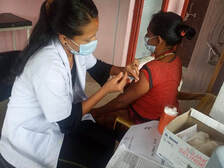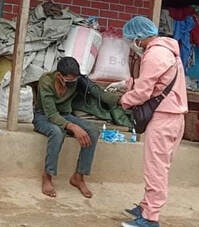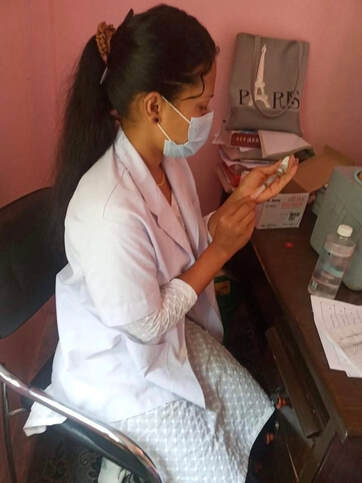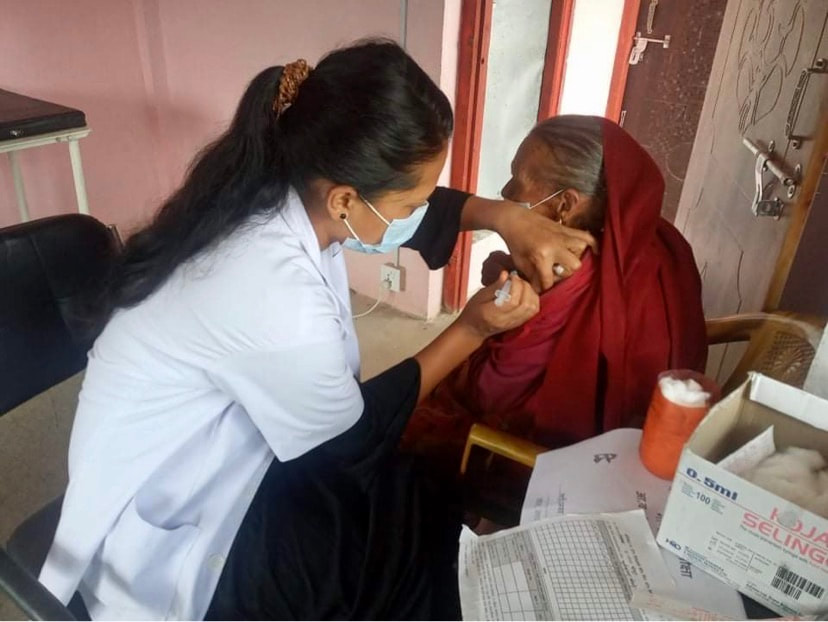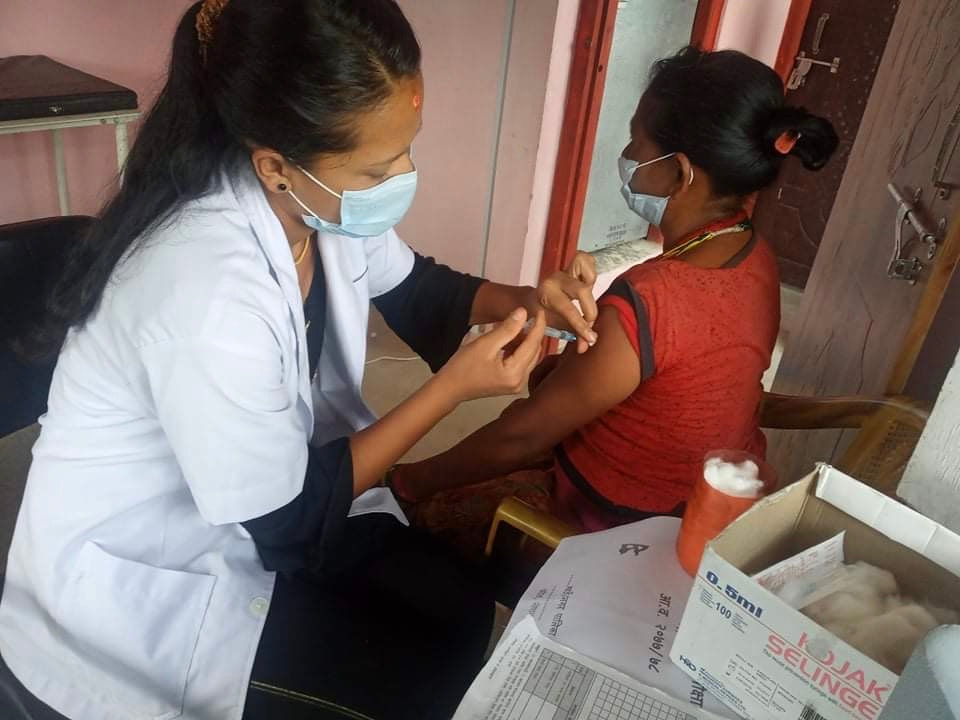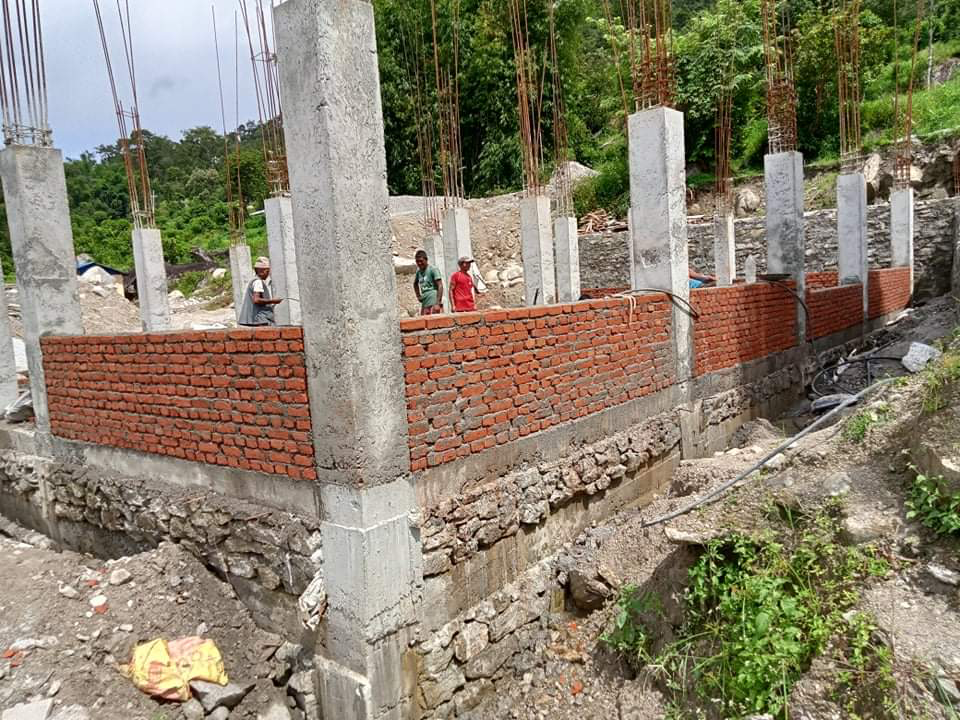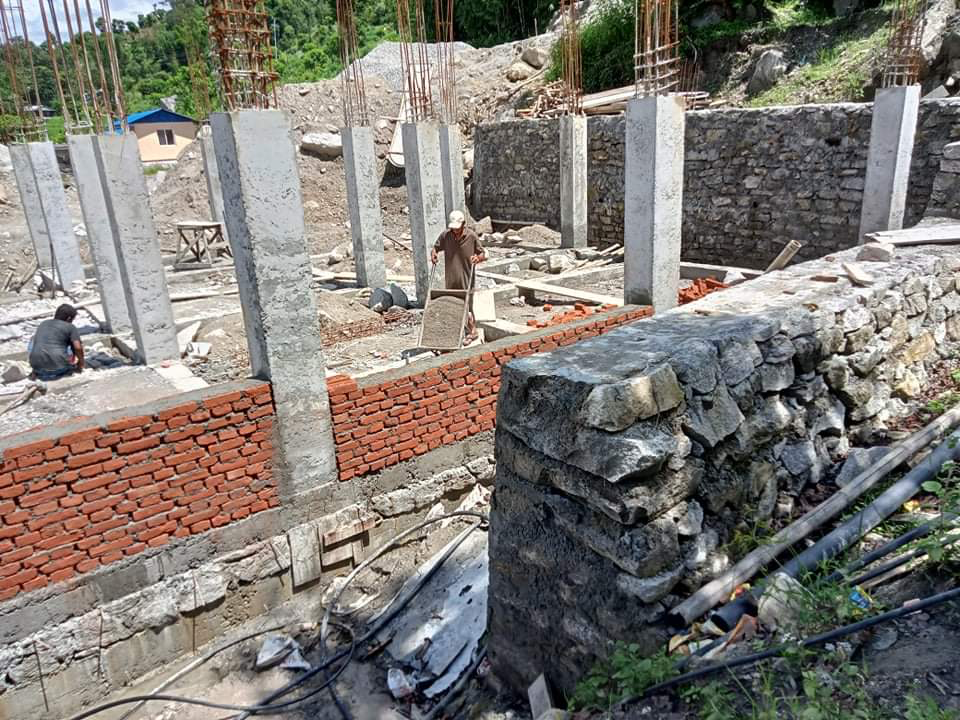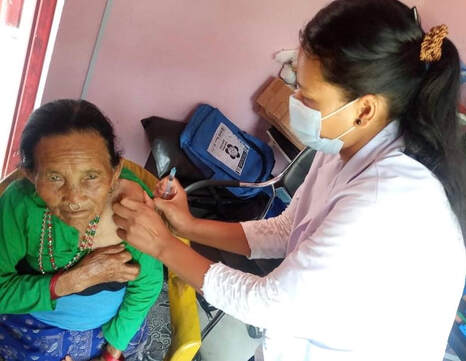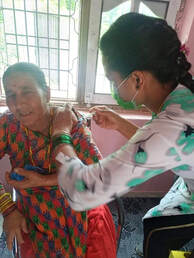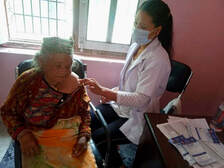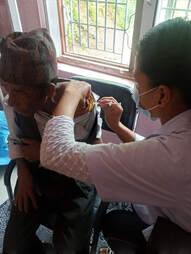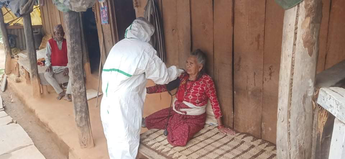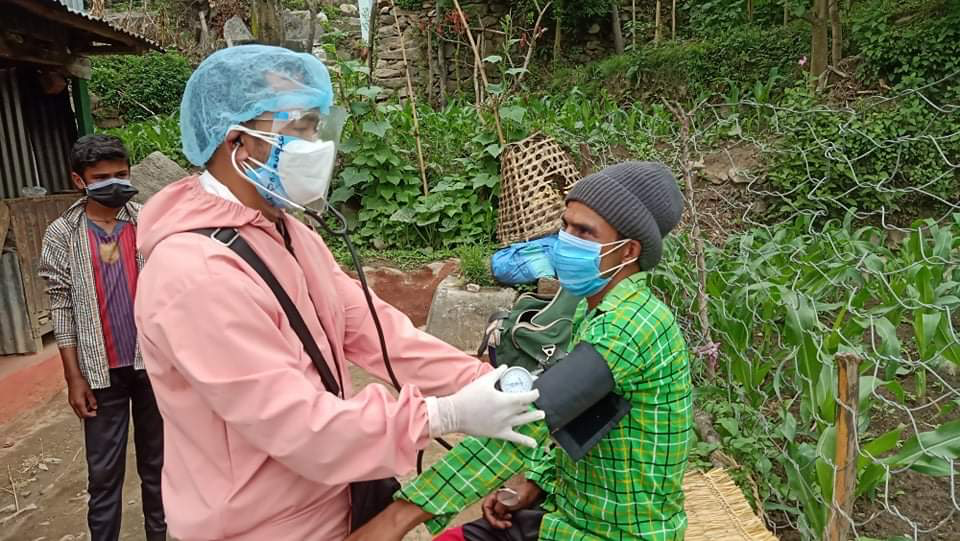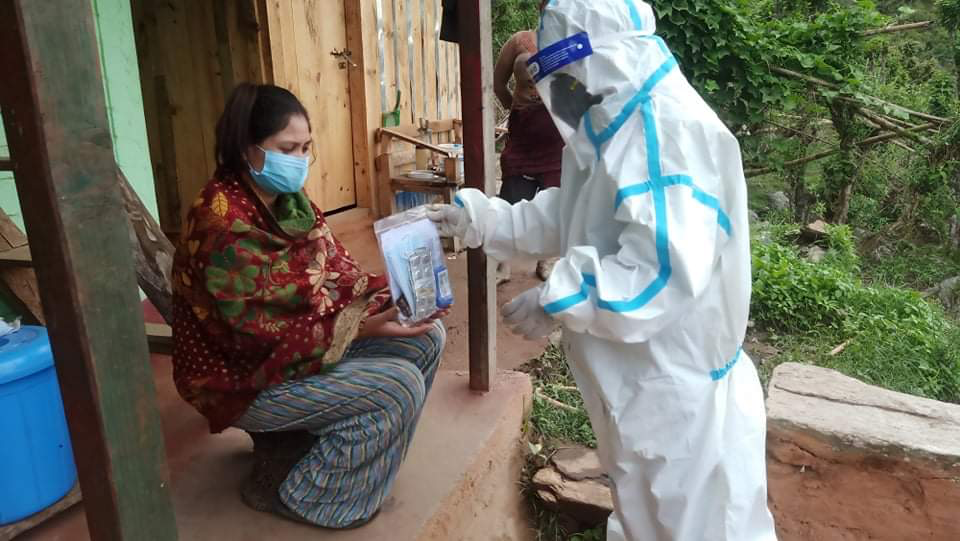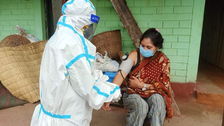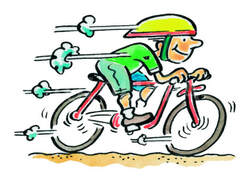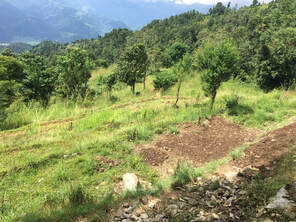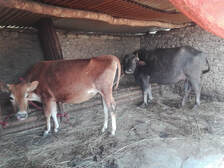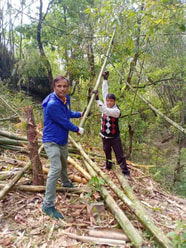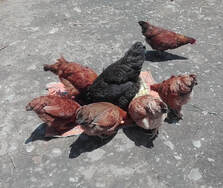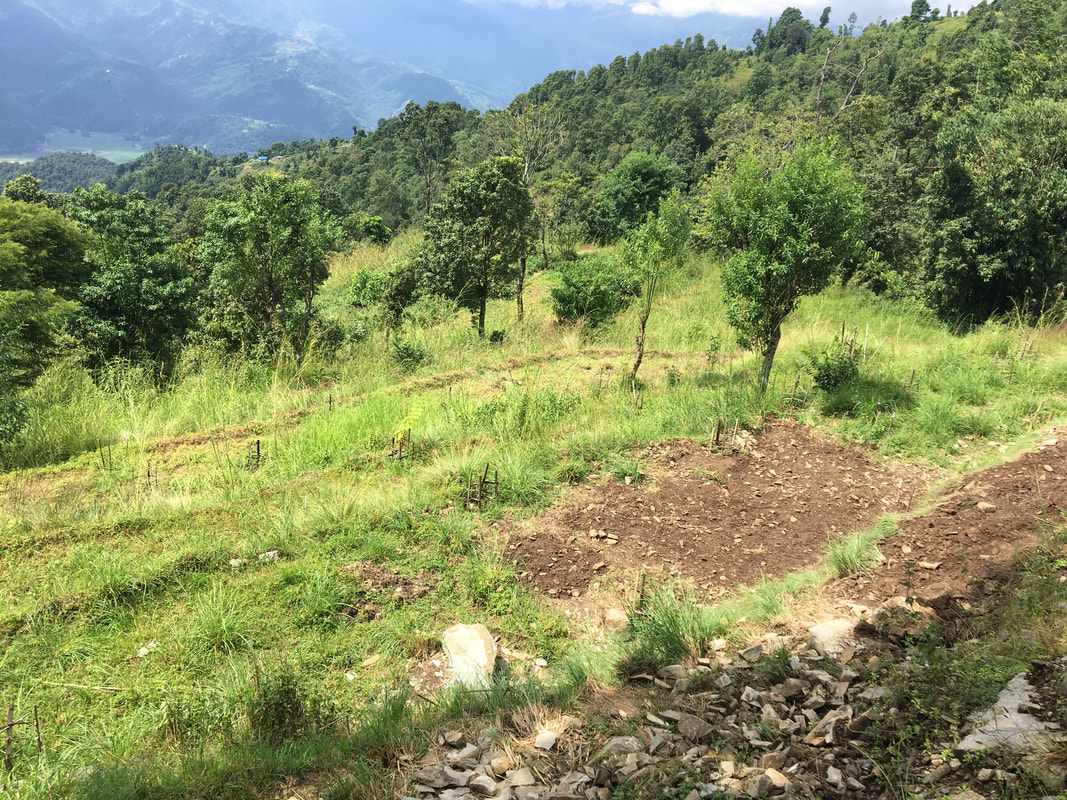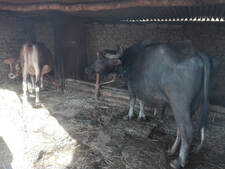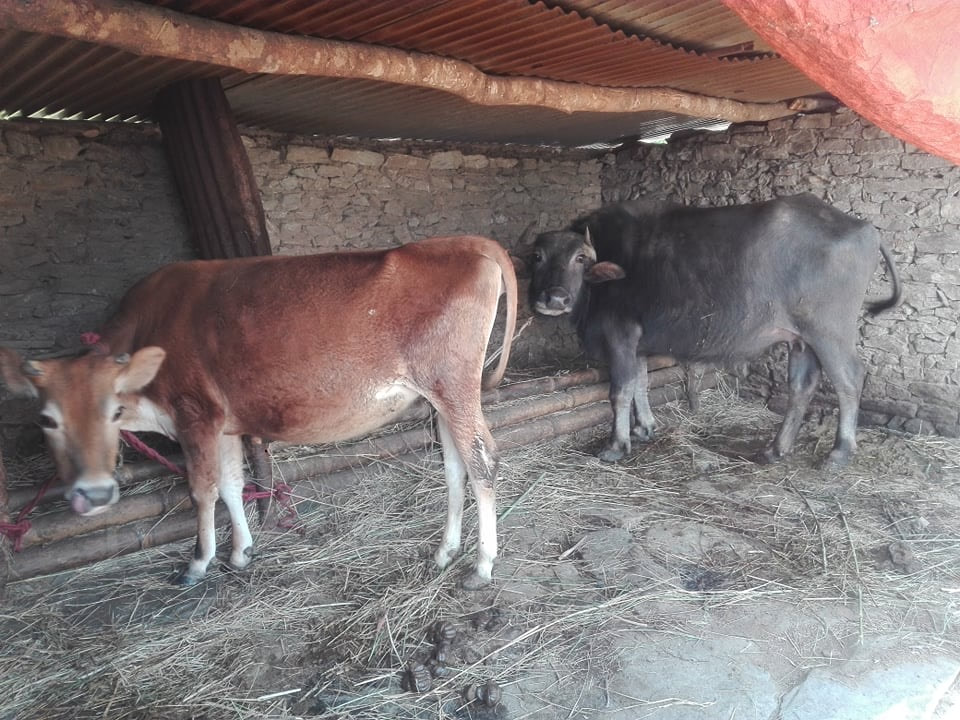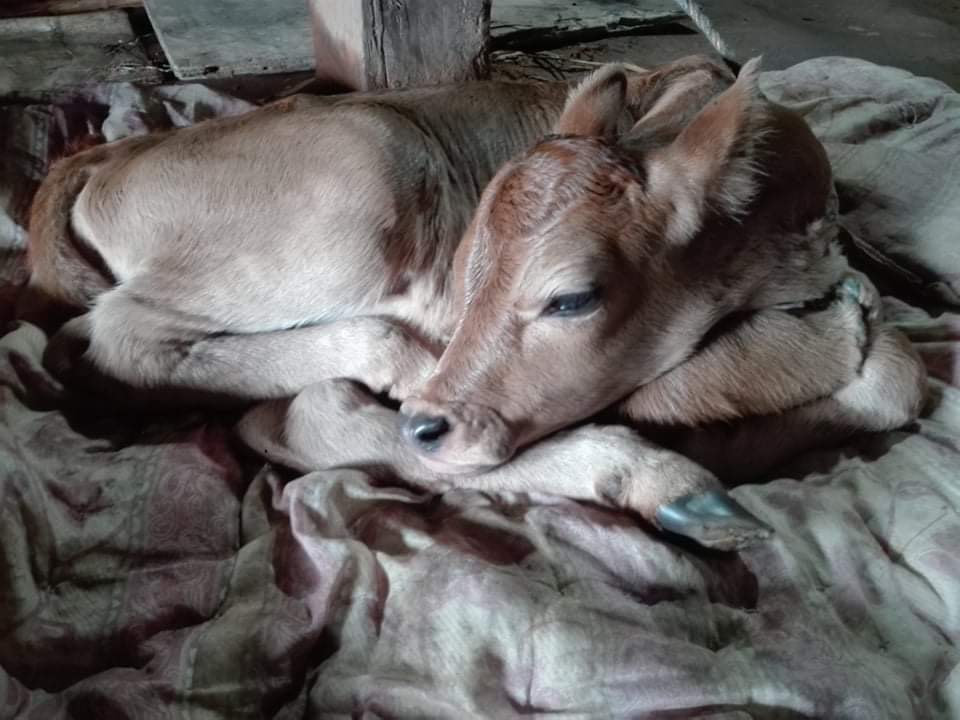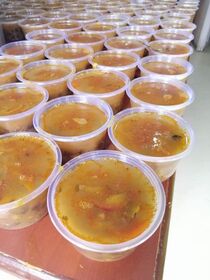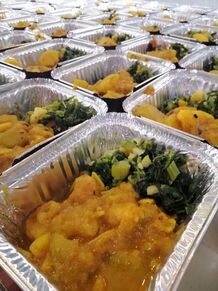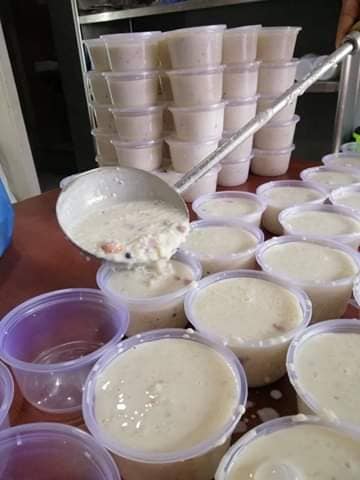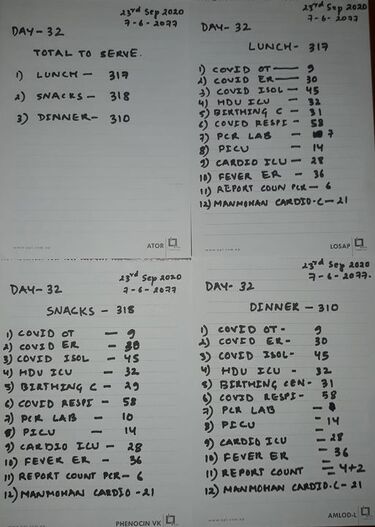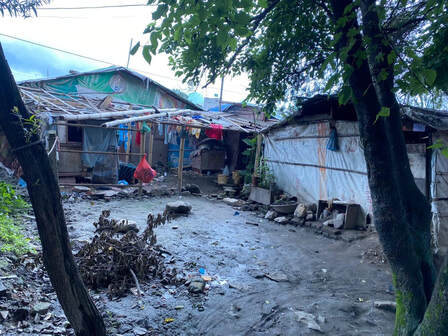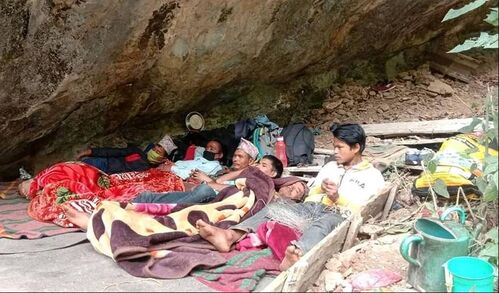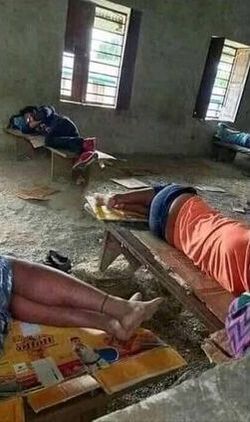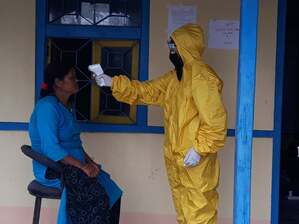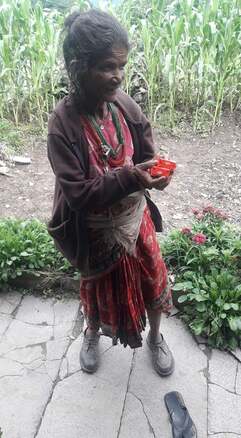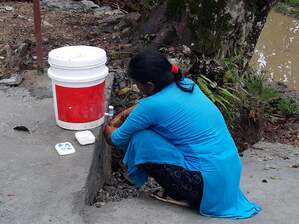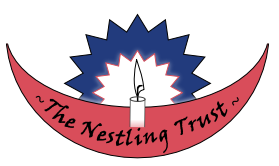Well done to everyone involved with the development of this amazing incubator that has the potential for saving the lives of countless newborn babies worldwide.
|
Fantastic news, the mOm incubator has been granted the CE mark! The Nestling Trust is proud to be associated with the mOm team, and we look forward to helping facilitate a pilot programme in Nepal.
Well done to everyone involved with the development of this amazing incubator that has the potential for saving the lives of countless newborn babies worldwide. The following excerpt from The Britain Nepal Society gives insight into the current Coronavirus situation in Nepal:
Latest COVID-19 Situation Report from Nepal & Recent Press Highlights, Nov-Jan, 2022
1. Plan (November – February 2021), and different federal ministries, provincial governments and local governments are working together to ensure that response plans are in place to mitigate the impacts of the latest spike in COVID-19 cases.
2. testing facilities have also reduced costs per test to Rs 1500 from an earlier charge of Rs 2000.
When hope was fading and fear rising, nurses have been able to continue providing medical care to families living in the remote village areas of Dolakha, Nepal.
Since the start of the pandemic, thanks to the generosity of our supporters, TNT has provided support and essential medical equipment, including oxygen and PPE, as well as soap and handwashing supplies to the 5 Health Clinics it established together with Sitara and HDS - Nepal, in Bhirkot, Lapilang, Marbu, Chilankha and Melung. Each clinic in partnership with the Ministry of Health serves approximately 6000 people. Nurses have continued with their routine work - wound care, antenatal and postnatal care, child immunisation and acute and chronic illness management etc. while working tirelessly to help prevent the spread of the Coronavirus as well as caring for those affected. TNT pays tribute to the dedication and efforts of these nurses who with liitle concern for their own safetey, have put the needs of others first. It has been fantastic to receive the news that each Health Post is now providing Coronavirus vaccine to the villagers in their areas. As we hear of this vital work being undertaken TNT is deeply grateful to all who have supported our Health Initiative projects over the past 7 years, without your help none of this would have been possible - thank you. Great news - villagers have now received their second doses of the vaccine to protect them from the Coronavirus.
Health and Birthing Centre supported by the Nestling Trust and partner NGO, HDS-Nepal, and in collaboration with Nepal local government, underway in the remote village area of Baiteshwor, Dolakha.
Neonatal and maternal death rates continue to soar since the start of the pandemic, especially in rural areas such as this, where villagers are reluctant to travel to the towns to give birth. When complete it will serve approximately 12,000 people. Great to see! Over 65's receiving Covid immunisations. The Health Clinics at Melung, Bhirkot and Marbu funded and established by the Nestling Trust in coordination with SITARA Nepal and the Nepal Ministry of Health, are helping the rollout Coronavirus immunisation programme. Prior to this villagers in these remote areas of the Dolakha region had no medical facilities.
Nepal is now facing a third wave of the Coronavirus which has swept throughout the country with rural areas suffering especially badly where there is no access to medical care. TNT is hugely grateful to all our generous supporters who have helped us provide basic healthcare and health education to 30,000 people living within the areas of the five Health Clinics. Nurses at Marbu clinic care for villagers with Covid-19
In the remote villages of Nepal thousands live in areas without access to hospitals. ITV's report into the current nightmare situation in Nepal as the Indian variant of Covid-19 spikes out of control..
https://www.itv.com/.../covid-19-threatening-to-overwhelm... Article from The Kathmandu Post
Post Report Published at : May 12, 2021 Updated at : May 12, 2021 23:21 KathmanduNepal government's poor communication system has left many Nepalis confused about its vaccination campaign, the status of the country’s stock of the doses and its plan—if it is planning—to procure more jabs against Covid-19. Back in January, Nepal became one of the first countries to launch its vaccination drive against the virus, even as some western countries were struggling. The country was seeing a dramatic decline in the number of new cases. The KP Sharma Oli government acted triumphant, as if it had already won the fight against the pandemic. Complacency, coupled with negligence, missteps and poor governance, then led to a sharp rise in the cases. The country has been overwhelmed by the pandemic. Nepal’s health system is buckling under pressure. Hospitals are turning away patients because they lack beds and oxygen. Nepal’s plan to procure millions of doses of vaccines is currently in a state of limbo. edit. Part of the report from Peter Beaumont of 'The Guardian' published on 6th May '21:Nepal facing ‘human catastrophe’ similar to India’s amid Covid surgeCountry appeals for international help, with vaccines in short supply and a reported 47% positivity rate
"Nepal is struggling to contain an explosion in Covid-19 cases, as fears grow that the situation in the Himalayan country may be as bad, if not worse, than in neighbouring India, with which it shares a long and porous border. Following warnings by health officials earlier this week that the country was on the brink of losing control of its outbreak, Nepal has appealed for urgent international help. As the country reported its highest daily number of new infections – 9,070 – the prime minister, KP Sharma Oli, who has been criticised for his handling of the crisis, asked the army to help manage emergency facilities to take pressure off the health system. With vaccines running short and hospitals overwhelmed, serious outbreaks have hit both the capital, Kathmandu, and the south-west and west of the country. The national positivity rate – the percentage of tests that come back positive – is being reported at a staggering 47%. Rates are even higher in some locations. Earlier this week Oli appealed to the international community for vaccines as officials warned that those who had already received a first dose of the AstraZeneca jab were in urgent need of second shots. The government’s haphazard vaccination campaign, with people queuing for hours in the capital, has been blamed for spreading the disease. Amid new lockdowns and the cancellation of most international flights, travellers told of checkpoints in Kathmandu en route to the airport. One of the worst-hit areas outside Kathmandu has been the city of Nepalgunj in the Banke district, close to the border with the Indian state of Uttar Pradesh, which experienced a sudden influx of thousands of returning Nepali migrant workers from India ahead of the closure of the border between the two countries. “We need to act now and we need to act fast to have any hope of containing this human catastrophe,” said Alexander Matheou, the Asia Pacific director for the Federation of Red Cross and Red Crescent Societies. Netra Prasad Timsina, the chair of the Nepal Red Cross, said: “What is happening in India right now is a horrifying preview of Nepal’s future if we cannot contain this latest Covid surge that is claiming more lives by the minute.” London to Kathmandu Virtual Trail - join the High Hopes Team!Help us reach the 5415 mile goal by achieving and logging your own personal target in the month of June 2021! For more information if you wish to take part please email: [email protected] or phone Sue Hamblin 07973414601 Last year The Nestling Trust High Hopes Team reached the virtual height of Everest by climbing up local hills - this year we aim to walk or cycle the distance between Tower Bridge in London to the Swayambhunath Stupa in Kathmandu. We hope to raise funds to provide medical care at this time of desperate need for families living in areas of Nepal where no medical facility exists.
Nepal sharing a border with India has seen a huge surge in Covid-19 cases reported in the Kathmandu Valley. The Nepal Government has announced prohibitory measures to restrict movement across the country from Thursday, in a bid to curb the rampant spread of the virus. However, it has been reported in the Kathmandu Post and Himalayan Times that today crowds are fleeing from the capital, back to their villages. The increasing risk of widespread infection is grave, and especially so in remote villages without even basic healthcare.
The Nestling Trust has established 5 Health Clinics in the remote villages of the Dolakha region thanks to the donations from our generous supporters - please help us to do more at this time of crisis. It has been reported that despite rising cases of people infected with Covid-19, huge numbers of people took part in a holy celebration to offer prayers in Ghadiarwa Pokhari, Ranighat, Mudali, Chhapkaiya, Inerwal and other areas. The Nepal Government has issued guidelines as reported in the Himalayan Times 20/04/21. (https://thehimalayantimes.com/nepal/govt-issues-guidelines-to-control-spread-of-recent-wave-of-covid-19) Govt issues guidelines to control spread of recent wave of Covid-19 By THT Online Published: 11:27 am Apr 19, 2021 "The government has issued further guidelines to control the spread of coronavirus in the country, including closing of hotels, restaurants by 8:00 pm. KATHMANDU, APRIL 19 Government of Nepal has issued further guidelines to control the spread of the new wave of coronavirus infection in the country. The government has decided to introduce a new set of safety protocols acting on the recommendation of the Covid-19 Crisis Management. A meeting of the Council of Ministers at Baluwatar this morning decided to shut all schools in urban areas of the worst Covid-hit 14 districts. Online teaching-learning activities have been recommended in stead of physical presence at the educational institutions. Schools in Covid-hit urban areas to remain shut throughout Baishakh Likewise, it has decided to enforce prohibitions on the operation of hotels and restaurants beyond 8:00 pm. As per the new rules, hotels and restaurants can only operate for 12 hours, from 8:00 am till 8:00 pm. However, online ordering and delivery of foods from such outlets will be allowed. Furthermore, no more than 25 people would be allowed to gather at one place at one time. In the same manner, only 25 people can participate in ceremonies such as weddings, thread-ceremonies, etc. As per the cabinet decision, all sporting events will have to be organised without audiences while only daily rituals would be allowed in places of worship. Similarly, public vehicles will have to follow safety measures strictly and should not board anyone without a mask on. The vehicle operators, however, cam sell masks to passengers without one, for no more than NRs 10. Businesses like health clubs, party venues, dance bars, night clubs, dohori restaurants, swimming clubs, futsal, gym, etc will have to close all operations till Baisakh end, as per the freshly introduced protocol. Following the second wave of coronavirus in the country, the daily infection tally has risen over 1,000 as of Sunday. Ministry of Health and Population on April 15 had classified 14 districts as Covid-19 hit areas including three districts of Kathmandu valley." 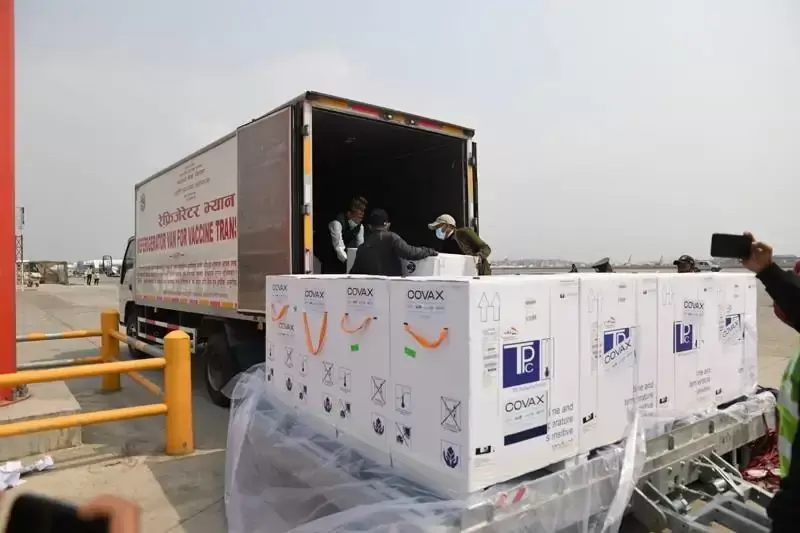 (Photo curtesy of United Nations) Nepal has received a delivery of COVID-19 vaccine under COVAX facility. It is an international initiative coordinated by the World Health Organisation and partners.
The following article was published in the Himalayan Times on March 07, 2021. 'Nepal is getting a total of 13,000,000 doses of AstraZeneca/ Oxford vaccine produced by the Serum Institute of India under the COVAX facility. From among the total doses of the vaccine the country is getting 348,000 doses of vaccine tomorrow. "We will receive the first batch of the vaccine under the COVAX facility tomorrow," said Minister of Health and Population Hridayesh Tripathi at an interaction in the capital today. The vaccine received under the facility will be administered to people above 55 years of age. The government is launching its vaccination campaign in the community level from tomorrow by vaccinating people above the age of 65 years. After 10 days those aged between 55 and 64 will get the vaccine. The government has aimed to inoculate 72 per cent of the total population in the vaccination campaign. The country had launched its COVID-19 vaccination drive from January 27 and has vaccinated 429,705 persons with the first dose of the vaccine, which is 1.4 per cent of the total population.' The Himalayan Times reports that on Sunday, Nepal’s coronavirus case count reached 261,859 with 421 newly confirmed cases and 1885 deaths. However, it must be remembered that these figures reveal only the results of those tested. Local people report that since the lockdown ended people are ignoring the advice to wear masks and socially distance and that there are many unable to go to hospitals, are sick at home and deaths have risen noticeably.
Our sincere thanks to all who donated to The Nestling Trust during the BigGive week this year.
We are delighted to say that we've reached our target figure for the Horticultural project. This will help the sustainability of the Sarangkot Nestling Home, by providing organic fresh fruit and vegetables for children in the Home as well as local villagers, so helping to generate funds for clothing and education. Local Coronavirus restrictions allowing, we hope that work can begin by early February. Land at the home is exposed to adverse weather and as a result crops in the garden often fail. The Children’s Home Horticultural Project involves building protected ‘pit greenhouses’, giving training opportunities and work for those who have lost their jobs as a consequence of the pandemic. Thank you again to everyone who has supported this project.. The Children’s Home Horticultural Project ‘Grow our own’ nutritious food, self-sufficiency, and sustainability In a year when we have been unable to hold our normal fundraising events this 'Match Funded' Big Give Christmas Campaign provides a great opportunity. Please help us reach our £10,000 target One donation Twice the Impact! The project will improve the sustainability of our Children’s home in Sarangkot by providing organic fresh fruit and vegetables for the Home and local villagers, as well as generating an income to offset other expenditure such as clothes, education etc. Land at the home is exposed to adverse weather and as a consequence crops in the garden often fail. Water supplies are scarce and unreliable. Fruit and vegetables have to be bought at considerable cost and at some distance. The project involves building protected ‘pit greenhouses’ which will provide fresh produce for the home and local villagers but also training opportunities and work for those who have lost their jobs as a consequence of the pandemic. Proposed site for the 3 Pit Greenhouses - below the playground area of the Children's Home. Children's Home livestock would provide organic fertiliser!
Bijendra Aryal, Nestling Trust director in Nepal has been to visit Bikram Bhadel, a pharmacist whose workplace is opposite the Tribhuvan University Teaching Hospital in Kathmandu. The visit was the result of the Nestling Trust seeing the following article: (https://apnews.com/c1cd52ef723a5435aef7dd339a99af23?fbclid=IwAR0Gxd19tIvWBVWXC1aq6qQT7EfSJmWToDNIy52bVDjzewfB6dTb9E_Ii28) The following was reported: KATHMANDU, Nepal (AP) — From his pharmacy outside Tribhuvan University Teaching Hospital, Bikram Bhadel saw what happened when coronavirus lockdowns closed the facility’s cafeteria and nearby cafes. “Every day I watched the patients, their families, doctors and other health workers struggling to get a good meal,” Bhadel said. “They were already having a tough time and the food situation was making it worse. This is where I decided that I need to step in and help out.” He took 1 million rupees ($8,333) out of his family’s savings. And with the help of his friend Indra Kumar Newar -- a taxi driver who had no work in recent months due to the lockdowns -- he rented a vacant restaurant across the street from the hospital, bought groceries and hired a few helpers. Now, at one of Nepal’s largest hospitals, more than 200 COVID-19 patients, doctors, nurses and workers get hot, tasty and nutritious food three times a day. “I have heard there is no medicine for the COVID-19 patients and the only thing to do is to take care of them and give them health food to help recover and regain their immunity. This is what we are trying to do to help,” Bhadel said. The meals are vegetarian, prepared after consulting with nutritionists. They offer a combination of rice, lentil, beans, vegetables, fruit and salad for brunch and dinner, and snacks in afternoon. They begin their day early in the morning. preparing hundreds of meals. Food is packed in disposable packets and carried by Bhadel and Newar to the hospital reception area, where the staff eagerly awaits. “The doctors and health workers have been working risking their own lives and away from their families. It was time to do something for them when they need them,” Newar said. Staffers work and stay at the hospital for a week on duty and then another week in quarantine before they are allowed to return home for a week off work. While they are at the hospital, their only access to hot meals has been what the team delivers. Nepal -- which has 49,219 confirmed cases of the coronavirus and 312 deaths -- first imposed a lockdown in March, which lasted for four months. A second lockdown was set last month in nearly half the country when the numbers kept rising. Bhadel and Newar estimate they spend about 50,000 rupees ($416) a day for groceries. They have hired 11 cooks and helpers, all of them paid minimum wage and are regularly tested for the virus. Families, friends and neighbours have donated food, money and supplies. Bhadel and Newar have paid the rent for three months. “We are hopeful the situation will get better in three months,” Bhadel said, “but if that does not happen, we will continue our work.” The Nestling Trust will contribute food needed for the preparation of meals in support of this amazing project.
KATHMANDU: The Health Ministry has reported 1,325 new cases of coronavirus infection in the last 24 hours taking the national tally to 64,122.
Today’s reported infections in the Kathmandu valley is 59.05 per cent of the country’s total cases. 11 more Covid-19 fatalities were recorded on Saturday bringing the total nationwide death toll to 427. Despite the escalating figures the government released the lockdown in Nepal on Thursday. Thousands have already lost jobs and livelihoods due to the lockdown which has been in place since March. It has been reported in the Himalayan Times that 400 Nepalese people per day are risking the high prevalence of Coronavirus in India (cases now estimated as 90,000), and are returning in order to find jobs. The Himalayan times reported today that the total number of people infected with coronavirus has increased to 50,465. 1246 new infections were reported in the last 24 hours.
The death toll now stands at 317. The lockdown is beginning to be eased albeit with restrictions. The Health Ministry on Wednesday reported 1120 new cases of coronavirus infection from across the country. Nepal’s Covid-19 tally now stands at 41,649 with 251 deaths. Lockdown has now been extended until at least 9th September '20, causing extreme hardship for families who now have no work. Schools remain closed and children from the poorer backgrounds are unable to access distance online learning.
Those known to have Coronavirus has now reached 29,645 with numbers escalating daily especially in the Kathmandu valley. This has led the government to announce a week long prohibitory order enforced in Kathmandu valley effective from Wednesday 19th August at midnight.
The Himalayan Times reports that the prohibitory order has been issued to 'discourage unwarranted movement of people in order to control the increasing spread of coronavirus infection in Kathmandu, Lalitpur and Bhaktapur....' Nepal's Community Health Service post Covid-19 - a personal view by Dr Arun from Charikot Hospital16/7/2020
I am Dr. Arun Upreti.
I am currently working as a Staff Physician in Charikot Hospital from Nyaya Health Nepal. Previously I worked as a medical officer for Government of Nepal in the same institute for 2 years. Charikot Hospital is operated in by Nepal Government in Partnership with Nyaya Health Nepal. Charikot Hospital is the largest health care provider in the district and provides health care services to over 50,000 annually. COVID has been a unique challenge for Nepalese health care system. The rural health care system which is run mostly by paramedics, nurses and fresh MBBS graduates is particularly vulnerable due to lack of adequately trained human resource, unavailability of COVID tests, under funded quarantine and isolation centers. Nepal government’s policies and guidelines are not replicated at the local level. I have now been working here for 2 months during the COVID pandemic - the only protection that I use is a N95 mask and gloves. The fever clinic is almost non functional. We feared working like that initially but now it has become a norm. There is a little difference between us practicing medicine pre and post COVID. Other public health measures like point of entry testing, community screening, contact tracing and surveillance do not meet the standards recommended in national protocols. Most teams are formed with inadequately trained staffs without proper IT and communication facilities. However there has been vast community engagement, thanks largely to the lockdowns which has completely changed the lives of everyone. Agencies and health care workers across all level are engaged in health education about COVID. Use of masks and hand washing has been prompted at all levels through available health facilities and FCHVs. While lockdowns have been important in curbing the spread of COVID, it has brought several impediments to health seeking behaviour of people. Due to unavailability of transportation facilities the number of patients in our OPDs has halved. The obstetric cases have been on the rise probably due to lack of services in other centers and people not having access to higher centers. As many complicated obstetric cases cannot go to higher centers in Kathmandu, our CS rate has also been on the rise. We have also seen too many cases of ruptured appendix, strangulated hernia all probably due to lack of elective procedures. Mental health is an aspect that has been overlooked. We have seen a significant rise in suicides in the district. We have been performing autopsies almost everyday, and the average autopsies for suicides has almost doubled in the last few months. The elderly and single women have also been significantly affected by the lockdowns. Many of them cannot get the health care they need. We had one elderly women who presented to our center with fractured femur, which needed operative management. None of her family members were willing to take her to higher center for treatment. We get similar stories almost everyday. Some day its a fracture needing operative management, other days it COPD requiring ICU admissions. Most have given up on treatment for the elderly because of lack of transport and risk of COVID infection. I strongly believe these are the areas that needs significant work and should be important part of the COVID response. I believe we need community based programs that are related to mental health. Also assistance to elderly, single women and pregnant mothers especially for transportation would be particularly helpful in the lockdown. Thousands of jobless Nepali migrant workers are coming back into Nepal from India - many held waiting at the border.
It was reported that 4000 arrived last week without proper testing and are returning to their villages all over Nepal. Some are in quarantine but we understand that many are running away from quarantine areas due to lack of food. The Nestling Trust is running a campaign to Hike the Height of Everest (Virtually) The Team High Hopes has members in the Wiltshire and New Zealand. It is a huge effort with the aim of saving lives in the vulnerable communities of Nepal.
Coronavirus is escalating in Nepal. It is reported that at least 83,020 Nepali migrant workers have returned from India alone, with at least 400 still entering Nepal daily. India is fourth in the table of the worst Coronavirus hit countries with figures still soaring. Thousands more are returning from the Gulf countries and China. Nepal's frail health system is struggling with inadequate testing and with thousands heading for the remotes villages, the situation is of huge concern. The Nestling Trust with SITARA their partner NGO, has already provided vital medical equipment, PPE, disinfectant and soap for the Health Posts it has established, but much more is needed to support their work, to quarantine those newly arriving and to ensure needy families have food and soap at this time of crisis. |
London To Kathmandu Appeal
Categories
All
MAKE DONATION
|

